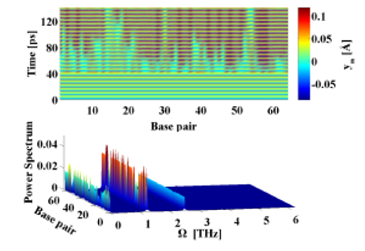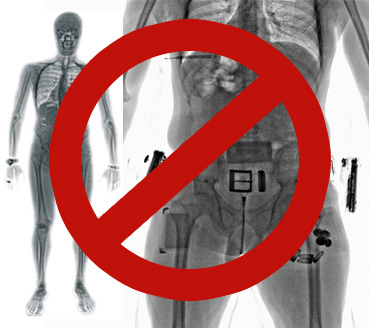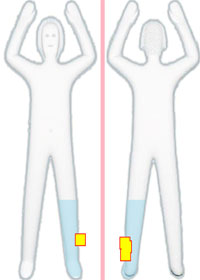Editor’s note: This is Part 1 of an extensive report by researcher Adam Taylor that exposes the fallacies and flaws in the arguments made by Popular Mechanics in the latest edition of Debunking 9/11 Myths. We encourage you to submit your own reviews of the book at Amazon.com and other places where it is sold.
Introduction
 The revised version of Popular Mechanics’ book Debunking 9/11 Myths continues to defend myths that are scientifically impossible The revised version of Popular Mechanics’ book Debunking 9/11 Myths continues to defend myths that are scientifically impossible |
A decade has passed since the tragic events of September 11, 2001, and many people feel that we have still not had a real investigation into what really happened that day. Many believe that the investigations into the destruction of the three WTC skyscrapers by the National Institute for Standards and Technology (NIST) were either fraudulent or incomplete, and have joined the 1600+ architects and engineers at AE911Truth in calling for a real, independent investigation into the attacks. However, Popular Mechanics (PM) has been the primary cheerleader in the mainstream media in defense of the NIST reports ever since its book, Debunking 9/11 Myths: Why Conspiracy Theories Can’t Stand Up To the Facts, was published in 2006.
For the ten-year anniversary of 9/11, PM put out a second version of its book, which was updated in an attempt to dismiss new findings that corroborate the controlled demolition hypothesis. The main sections of the book that were revised are on the collapse of the Twin Towers and World Trade Center 7. This report demonstrates that PM has still not adequately explained the numerous anomalies surrounding the collapse of these three buildings that prove they were destroyed with explosives.
(Quotes from Popular Mechanics’ book are shown in red and with page numbers.)
World Trade Center Towers 1 & 2
The introduction to PM’s chapter on the collapse of the Twin Towers briefly discusses the main theory put forward by members of the 9/11 Truth movement regarding the Towers’ destruction: “The buildings were brought down intentionally—not by hijacked airplanes, but by government-planted bombs or a controlled demolition” (pg. 28). PM then goes on to give a few examples of people promoting this theory. One of the people they cite is a Danish writer named Henrik Melvang, who, according to PM, “markets his book and video claiming the Apollo moon landings were a hoax” (pg. 28). This is obviously an attempt on PM’s part to portray those who question the collapse of the Towers as conspiracy theorists who have irrational beliefs. PM also cites Morgan Reynolds, the former chief economist at the U.S. Department of Labor during President George Bush’s first term, as someone who believes that the Towers were destroyed through controlled demolition.
We must ask ourselves why PM would choose to cite these people as examples of those who question the collapse of the Towers. Why didn’t they cite anyone with experience in the fields of engineering and building construction? According to PM, it’s because the 9/11 Truth movement doesn’t have any technical credentials. In their 2011 book, they state that:
Though Reynolds and a handful of other skeptics cite academic credentials to lend credence to their views, not one of the leading conspiracy theorists has a background in engineering, construction, or related fields. (pg. 28-29)
This statement is by far one of the most remarkable passages in PM’s book. One need only look at what most consider the lead organization in the 9/11truth community, Architects & Engineers for 9/11 Truth, to see that there are currently over 1600 professional architects and engineers with backgrounds in engineering, architecture and building construction who question the destruction of the three WTC high-rise buildings. How can PM possibly have omitted over a thousand experts who agree that the Twin Towers and WTC7 were brought down with explosives? In PM’s entire 216 page book, there is not a single mention made of AE911Truth or its founder, architect Richard Gage, AIA.
 Popular Mechanics did a poor job of updating their book, leaving in claims from their 2006 version (excerpt shown above) that no leaders of the 9/11 Truth movement have backgrounds in engineering. They completely ignore the hundreds of engineers at AE911Truth who have examined the WTC evidence and are demanding a real investigation Popular Mechanics did a poor job of updating their book, leaving in claims from their 2006 version (excerpt shown above) that no leaders of the 9/11 Truth movement have backgrounds in engineering. They completely ignore the hundreds of engineers at AE911Truth who have examined the WTC evidence and are demanding a real investigation |
When one looks back at their 2006 book, we can see that this exact same statement appears on the exact same pages.
This fact shows how PM has decided to structure their new book: i.e., update it only where it benefits them. As we will see, this tactic is used more than once in PM’s grossly flawed book.
 The debate over the airplane crash at the Empire State Building is irrelevant because the design of the Twin Towers was far more robust than that of older high-rises The debate over the airplane crash at the Empire State Building is irrelevant because the design of the Twin Towers was far more robust than that of older high-rises |
1.1 The Empire State Building Accident
PM discusses the incident in 1945 where a B-25 bomber lost in the fog crashed into the side of the Empire state building. They claim that “some conspiracy theorists point to [this incident] as proof that commercial planes hitting the World Trade Center could not bring down the towers” (pg. 29). To counter this assertion, PM discusses the construction of the Towers compared to the construction of the Empire State Building and how the Towers’ structures “were in some ways more fragile” (pg. 30). They also quote structural engineer Jon Magnusson as saying that “These structures look massive, but they’re mostly air. They are air, punctuated with thin layers of concrete and steel” (pg. 30). While it is true that the Towers were mostly empty space by volume, this is true of any large skyscraper. The idea that the Towers were in some way less structurally sound than the Empire State Building is contradicted by a variety of technical sources, including this telegram written by Richard Roth, partner at Emery Roth & Sons, which was the architectural firm that designed the Twin Towers:
THE STRUCTURAL ANALYSIS CARRIED OUT BY THE FIRM OF WORTHINGTON, SKILLING, HELLE & JACKSON IS THE MOST COMPLETE AND DETAILED OF ANY EVER MADE FOR ANY BUILDING STRUCTURE. THE PRELIMINARY CALCULATIONS ALONE COVER 1,200 PAGES AND INVOLVE OVER 100 DETAILED DRAWINGS.
...
4. BECAUSE OF ITS CONFIGURATION, WHICH IS ESSENTIALLY THAT OF A STEEL BEAM 209' DEEP, THE TOWERS ARE ACTUALLY FAR LESS DARING STRUCTURALLY THAN A CONVENTIONAL BUILDING SUCH AS THE EMPIRE STATE BUILDING WHERE THE SPINE OR BRACED AREA OF THE BUILDING IS FAR SMALLER IN RELATION TO ITS HEIGHT.
...
5. THE BUILDING AS DESIGNED IS SIXTEEN TIMES STIFFER THAN A CONVENTIONAL STRUCTURE. THE DESIGN CONCEPT IS SO SOUND THAT THE STRUCTURAL ENGINEER HAS BEEN ABLE TO BE ULTRA-CONSERVATIVE IN HIS DESIGN WITHOUT ADVERSELY AFFECTING THE ECONOMICS OF THE STRUCTURE.i
Article Continues →




 The revised version of Popular Mechanics’ book Debunking 9/11 Myths continues to defend myths that are scientifically impossible
The revised version of Popular Mechanics’ book Debunking 9/11 Myths continues to defend myths that are scientifically impossible Popular Mechanics did a poor job of updating their book, leaving in claims from their 2006 version (excerpt shown above) that no leaders of the 9/11 Truth movement have backgrounds in engineering. They completely ignore the hundreds of engineers at AE911Truth who have examined the WTC evidence and are demanding a real investigation
Popular Mechanics did a poor job of updating their book, leaving in claims from their 2006 version (excerpt shown above) that no leaders of the 9/11 Truth movement have backgrounds in engineering. They completely ignore the hundreds of engineers at AE911Truth who have examined the WTC evidence and are demanding a real investigation The debate over the airplane crash at the Empire State Building is irrelevant because the design of the Twin Towers was far more robust than that of older high-rises
The debate over the airplane crash at the Empire State Building is irrelevant because the design of the Twin Towers was far more robust than that of older high-rises
 Body scanners will be introduced at all of Australia's international airports providing the travelling public with the most advanced passenger screening technology available in the world.
Body scanners will be introduced at all of Australia's international airports providing the travelling public with the most advanced passenger screening technology available in the world. Most Americans are astonished to discover that right up to 9/11, the CIA was developing a "Real Politik" vision of Iraq that recognized the fast approaching collapse of U.N. Sanctions. The CIA was preparing for Peace---with a ruthless determination that the United States would capture the lion's share of spoils from Iraqi Reconstruction contracts in any post-sanctions period.
Most Americans are astonished to discover that right up to 9/11, the CIA was developing a "Real Politik" vision of Iraq that recognized the fast approaching collapse of U.N. Sanctions. The CIA was preparing for Peace---with a ruthless determination that the United States would capture the lion's share of spoils from Iraqi Reconstruction contracts in any post-sanctions period.

RECLAIM AUSTRALIA IS DOOMED
Although I agree with many of their ideas, the forces reigned against RAM are too great, violent, statist and reactionary for them to remain a non-political, broad based, multi-ethnic, community protest group for much longer. The Left and their Antifa nihilist fellow travelers are already pushing them towards the extreme Right, by calling them racists and Islamophobes and so on. Whilst the extreme Right have aligned themselves with RAM. With fascists of the Left and Right pressuring them they will not be able to remain beyond the Left-Right divide and will inevitably move to the Right - the extreme Right. Which is already happening. A development which will alienate decent Australians of all ethnic backgrounds many of whom currently support them.
The RAM leadership have already established open alliances with the Patriotic Front (the ape in the photograph is a Patriot Front supporter at a recent Richmond demonstration) Australia First and Golden Dawn, a Greek neo-Nazi party. Members of these collectivist groups are currently attending RAM demonstrations all over Australia.
There is a real need in Australia to establish a political movement beyond the Left-Right divide and their vested interests, a movement that questions the current direction Australia is heading i.e. the direction the Left/Right and their extremes would like to take it; that questions the efficacy of state sponsored multiculturalism, as opposed to a proper, non-discriminatory immigration policy; that questions the validity of political correctness; that is politically neutral, anti-war and pro environment; that is opposed to all collectivists ideologies (fascisms of the Left and Right); that would dismantle the power pyramids of corporations and banks and their ability to impact on government; that would dissolve all anti-terror laws and all laws that impose on the rights and freedom of the individual and the people.
(The ape in the photograph is a Patriot Front supporter at a recent Richmond demonstration)
http://www.smh.com.au/nsw/reclaim-australia-rally-set-for-sydney-on-sunday-20150718-gifb9s.html
http://australiafirstparty.net/news/reclaiming-australia-queensland-senate-campaign/
By Eugene Donnini on 2015 07 26 - 15:36:56
From the entry 'Dylann Roof: soldier in a new race war or just a pawn in the game?'.
Hello there I am so thrilled I found your web site, I really found you by error, while I was searching on Digg for something else, Anyways I am here now and would just like to say thanks for a incredible post and a all round thrilling blog (I also love the theme/design), I don韙 have time to go through it all at the minute but I have bookmarked it and also included your RSS feeds, so when I have time I will be back to read a lot more, Please do keep up the great work.
By Prova a Adidas Neutro Originals Nizza Nero Giallo on 2015 07 20 - 08:41:30
From the entry 'Statism, the greater good and the big lie'.
I second Keith’s assertion that Mike Holt from Restore Australia is very much a fake. He bangs on about Halaal being a scam and money maker for Islam (and no I don’t support Halaal whatsoever), but makes excuses for its counterpart Kosher as being a somehow legitimate. Double standards? When I confronted him about this fact he went off on a convoluted tirade about Israel being some sort of “Bastion of Democracy” in the middle east…Really!, I will leave that one up to the readers to decide on. I found that MH came across as disingenuous to say the least.
By Citizen Scorn on 2015 07 19 - 07:33:43
From the entry 'Restore Australia!'.
Without doubt, TNR is one of the best, if not the best alternative news source on the net. Which doesn’t mean Herewood is always right. His job, I believe, is to present the facts as he sees them as an objectively as possible, without fear or favor. For this, he has my respect and support. But I believe he needs to be careful and to think a little deeper about the problems of “racism,” in Australia. He has labelled the Reclaim Australia Movement as racist. I’m wondering if his objectivity is a little weak on this point, a little without foundation.
Of course all political movements have its fringe groups and individuals. We make a distinction between, for example, a Muslim and a fundamentalist Muslim (Islamist), and by so doing we don’t claim that all Muslims are blood thirsty fanatics. If its good for the Muslims, then its good for RAM, which is bound to attract a few lunatics and real racists. But to brand the entire movement as “racist” is wrong; it is the same ploy that is used by the mainstream media and its left-wing, establishment Marxist boot boys.
One of the first things I noticed when i attended a RAM rally recently were the amount of non-white people in attendance, including Aboriginals. In fact the main banner of RAM contains an Australian flag and an Aboriginal flag. Speakers at their rallies have included Jews, Arabs, Indians, Aboriginals, Chinese and so on. What does this tell you? Is this really a fascist-Nazi-racist movement whose stated aim are the eradication and exclusion of other cultures, in place of some sort of Aussie white Reich, or is this just propaganda that is being propagated by the left for their own political interests. Consequently, we all know where the culmination of their politics have led, historically speaking, which are to the imposition of terror and dictatorships.
We can be thankful for small mercies, in terms of the Left, which today mostly tends to attract collectivists, establishmentarians and the privileged sons and daughters of the upper bourgeoisie, who seems to share one thing in common, nativity….
By Eugene on 2015 07 18 - 16:03:54
From the entry 'Dylann Roof: soldier in a new race war or just a pawn in the game?'.
Mike Holt from Restore Australia is very much a fake. He hasn’t even been citizen for but a few years. But, he makes out like he was born there. ALSO - this guy spent 30 years in Thailand working shady businesses. I would wager that his primary purpose in being an activist is that he wants to make money off selling merchandise.
By Keith on 2015 07 17 - 20:51:15
From the entry 'Restore Australia!'.
good to see you putting out some new shows heraward
freely the banana girl is to a certain extent a troll, as is her boyfriend durian rider. they have been trolling the fitness community on youtube for some time… and yes they are extreme but they are also trolls. They use their trolling to spread their message. currently, another dude called vegangains is trolling the fitness community as well.
i am a vegetarian, and it was seeing this documentary on the pork industry that started me on the vegetarian path. for anyone interested, its pretty off the charts disturbing and its australian as well. its pretty much made by dudes breaking into pork farms and filming what they find
https://www.youtube.com/watch?v=KArL5YjaL5U
Would the world be better if people cared where their food came from? probably, they might then care about other things too
do you become a better person if you dont eat meat? i feel like a better person mainly because animals aren’t being hurt because of me. i dont feel humans have to eat meat really… or at least not much. How can you watch that documentary on pork, know that that is pretty much whats going on and turn a blind eye to it? I think its basic empathy and just saying well ‘i like bacon so yeah’ is in my opinion wrong and i can see freleys point of view to an extent. In my opinion, at least these people believe in something. i see my money as my vote, henceforth im ethical as to what i do with it. free range eggs became mainstream for exactly this reason… although im pretty sure woolies and coles lobbied the state to change the definition of the word ‘free range’ at some point. I dont eat beef because the amount of resources that go into growing a cow are pretty crazy. Think about how much grass that cow needs to eat before it is harvested and how much space it requires. think of how many vegies you could grow in the same space with the same amount of water. lamb? comon, think about what your doing here… but that being said i think most vegans are total loons. People like freeley should be advocating for the destruction of lions and tigers, as lions and tigers murder other animals in truly horrific style. if we humans are smart enough to not harm animals, then we should be stopping the animals that harm other animals from existing. Freeley also kills birds when she flies in aeroplanes so she is a hypocrite.
feminism is one of the biggest problems in society today and although there is some valid historical basis to it, the liberation of the human female from their biology is in my opinion largely a product of the technological advance of humans. sufferagettes where never machine gunned on the streets, unlike the men that where drafted and sent off to war to die just a few years earlier. as technology has advanced, women have advanced as well, however now its going way too far and is pretty blatantly anti male in many respects. i view feminism in its modern context as a tool of the social marxists that really isnt doing society a great deal of good at this time. its screwing up gender dynamics and is wrecking women and men for each other. i see it as low frequency, lowest common denominator idiocy, just like a lot of the the race baiting ‘is this racist’ stuff getting around that is being perpetuated pretty much as a distraction, divide and conquer strategy by the power elite. idiots love this kind of bicker and beef… it would be funny if it wasn’t so serious
anyway
I agree with steven friar. gods a maniac
good show… keep making them
By r0Kb3B0p on 2015 07 14 - 21:05:32
From the entry 'Addictions, obsessions, fanaticisms and distractions'.
Really truthfull.
By OZE on 2015 07 07 - 16:56:36
From the entry 'Defending your personal health choices'.
Yeah sure authority aware.
By OZE on 2015 07 07 - 16:28:55
From the entry 'What is the future of Australia?'.
Stay tuned for more rules here as usually is the case!!!
By OZE on 2015 07 07 - 16:21:50
From the entry 'Mass media disinformation and brainwashing dissected'.
Almost two months since the last broadcast! How the hell can you expect people to donate when you don’t broadcast? Looks like the ship of truth has sprung a leak. This broadcast has been part of my life almost since its inception…it is one of the few alternative news sources that hasn’t gone off the deep end, by dilution credible information with crap e.g. Fairdinkum Radio and Info Wars…Pittard started FR with some incredibly interesting material, but then he flipped…Today he sounds like a fundamentalist preacher, the Christian equivalent to a Fanatical Islamist. As an atheist, I think he’s really ###### up a potentially good show. As for Info Wars, all they would have to do to improve is dump Alex Jones, what a shit-for-brains. I reckon Jones and Pittard are allowed to proliferate, because they’re so stupid and harmless. I suppose they have some entertainment value, and along with David Icke are living examples of how low the alternative media has sunk. Truth News Radio is, or should I say was, way ahead of them all ahead of them all in terms of credibility How sad that its come to this.
By Eugene on 2015 06 28 - 17:28:56
From the entry 'Introducing Internet.org: Mark Zuckerberg's free 'private' internet which will soon be rolled out to 4 billion+ people'.